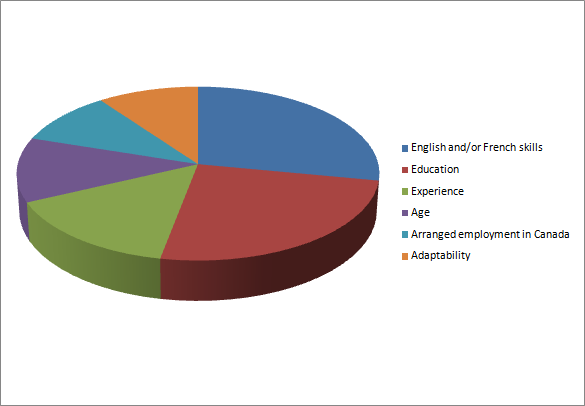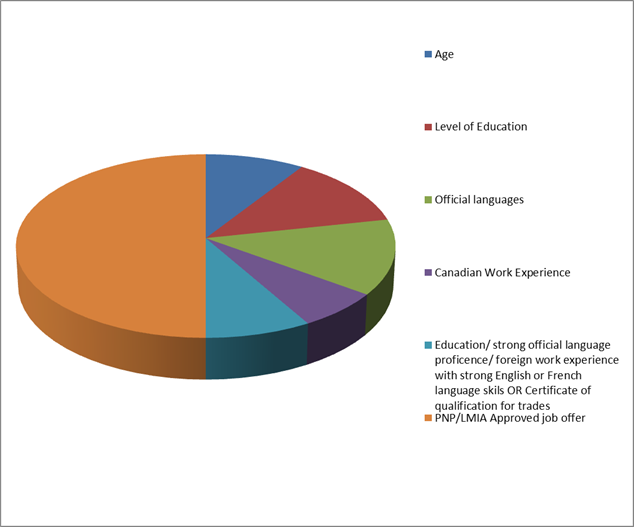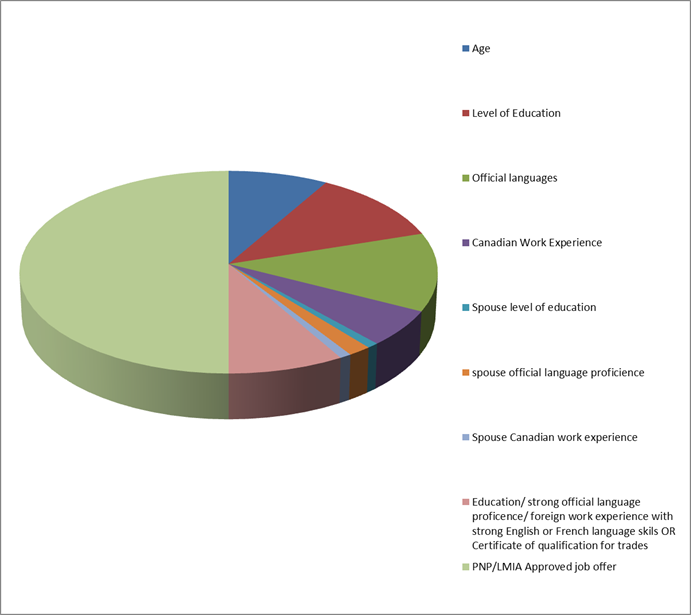How a Citizenship Lawyer Can Help You with Application Difficulties
If your eligibility for citizenship might be affected by the upcoming changes to Canadian immigration laws, which will be taking effect this June, then an immigration lawyer in Canada might advise that you submit your application sooner rather than later.
The number of permanent residents becoming Canadian citizens has been steadily decreasing in recent years, believed to be in part due to increased difficulty in attaining citizenship. With Bill C-24, which was passed last June and will change the requirements for citizenship starting this upcoming June, it’s expected to become even more difficult without the aid of a citizenship lawyer.
The Bill will essentially make Canadian citizenship more difficult to obtain, and easier to lose. It raises the minimum test score from 60 per cent to 75 per cent, as well as the minimum age for exemptions (i.e. not needing to take the knowledge test or prove language proficiency) from 55 to 65. This means many people who were waiting until they turned 55 to apply may have to wait an additional 10 years. Along with a fee hike—from $100 to $300 in February last year, and again to $560 in December—this presents a genuine challenge for those who do not have the benefit of working with a Canadian immigration lawyer.
Given the many reforms to immigration policy over the course of recent years, it’s no surprise that while 79 per cent of immigrants who arrived in 2000 attained citizenship when they became eligible, only 44 per cent of those who arrived in 2007 and 26 per cent of those from 2008 have done the same. (It is important to note that as it tends to take at least six years, if not more, to become eligible for citizenship, that these figures are more recent than they seem, as persons who arrived in Canada in 2008 would not be able to apply until at least 2014.) Apart from many people no longer being eligible—or taking longer to achieve eligibility—it’s also apparent that many permanent residents feel overwhelmed by the difficulty of attaining citizenship, or otherwise cannot meet the ever-demanding requirements.
For residents who are tentative about applying for citizenship, their best course of action is to consult a qualified and experienced citizenship lawyer. An immigration lawyer in Canada can help ensure that they meet all of the citizenship criteria and represent them in the application if necessary. Another benefit of a citizenship lawyer is that they can help appeal a case that has been rejected.
Government Officials Can Now Share Canadian Immigrants’ Personal Information
On February 28, 2015, the Canadian government proposed changes to a law under the Strengthening Canadian Citizenship Act (SCCA) that would enrich the lines of communication between Employment Canada, Revenue Canada, the RCMP, immigration and border enforcement officials as well as provincial authorities. As a result, immigration officials would have access to the personal information of permanent residents and citizens across the nation.
This noteworthy change will certainly be of interest to the hundreds of thousands of immigrants living in Ottawa who may want to find the best immigration lawyer to find out exactly how this will affect them.
Citizenship and Immigration Canada (CIC) has relied on the Privacy Act in the past to support some information sharing but this created uncertainty as to what information can and should be shared, and has limited its ability to enforce its programs.
The government position on SCCA is that information sharing is meant to allow authorities to minimize fraud, validate citizenship status for government services, authenticate the identity or status of individuals and proactively alert other officials of changes in their immigration status. They maintain that the goal is to “help uphold the integrity of the immigration system as a whole and improve client service, both in the citizenship and across the government.” This proposal also stipulates guidelines concerning grants of citizenship status for “lost Canadians” and adopted persons.
However, the SCCA has far reaching implications for the rights of individuals involved, and will likely be challenged in Court in due time. Some Ottawa immigration lawyers believe that it goes too far and breaches the constitutional rights of those impacted by the legislation.
If you are unsure about whether these proposed changes could affect you or your family, consult an Ottawa immigration lawyer today.
To read the full Regulatory Impact Analysis Statement, click here.
Canadian Immigration Lawyers Weigh in on IIVC Pilot Program
As the application process for Canada’s new Immigrant Investor Venture Capital Pilot Program nears its close on 15 April, critics, including Canadian immigration lawyers, can’t help but wonder: will this new pilot program be more successful than its predecessor, the now-defunct Immigrant Investor Program?
The Immigrant Investor Venture Capital Pilot Program (IIVC) is accepting 500 applicants, and will select 60 applications at random for approval. Applications were accepted from January 28 until February 11, 2015, and were reopened on February 13. They are expected to remain open until April 15, 2015, or until 500 applications have been received.
Compared to the Immigrant Investor Program, which is widely considered to have been a failure by Canadian immigration lawyers and refugee lawyers because it invited fraud, the minimum requirements for IIVC are much stricter, as illustrated below:
| Criteria | Immigrant Investor Program | IIVC Pilot Program |
| Minimum Net Worth | $1.6 Million | $10 Million |
| Investment | $800,000 for five years, guaranteed and interest-free | $2 million at-risk investment for 15 years |
| Language Skills | None | Proficiency in either English or French in speaking, listening, reading, and writing |
| Education | None | Canadian post-secondary degree, diploma, or certificate, or certified equivalent |
As this process continues, new data has emerged reporting that those admitted to Canada under the old Immigrant Investor Program have seen low earnings and low employment rates, suggesting a lack of attachment or integration into their new home. The program, termed by some as “Cash for Citizenship,” began in 1986, but ceased acceptance of applicants in 2012. After three years in Canada, only 47% of investor immigrants from the old program report any income at all, which falls to 39% after five years, and after 15 years the incomes reported average at $28,000. In contrast, refugees (those admitted while fleeing from their country of origin or with the aid of a refugee lawyer) reported higher rates of employment after five years, and average incomes were $30,000 after 15 years.
It is the hope of Canadian immigration lawyers and refugee lawyers that the higher requirements will mean that those admitted under the new IIVC Pilot Program will invest more into Canadian businesses and economy, and will be more likely to become a part of their communities. But some may also be concerned that with more restrictions, many potential investors will be more attracted to programs in other countries that better suit their needs, including the United States, United Kingdom, and Australia.
Immigration Lawyers: Population and Migration Tied to Economic Growth
Immigration lawyers are seeing a considerable increase in the number of newcomers to Canada, as immigration to major cities has been a strong factor in the considerable growth of various population areas.
Over 2013 and 2014, over two thirds of Canada’s census metropolitan area (CMA) population growth – 71%, to be exact – was caused by immigration to major Canadian cities. While Canada’s growth as a whole was measured at 1.1% for the time period in question, the growth rate of the nation’s CMAs was 1.4%, a considerable difference when counting in percentages of millions. As such, citizenship lawyers and immigration lawyers have their work cut out for them.
Canada’s two largest CMAs, Toronto and Montreal, both reached new landmarks in 2014: Toronto’s population reached 6,055,700, and Montreal’s grew to 4,027,100. While these overall numbers are impressive, the growth rates were actually rather average for the country.
The areas that have actually seen the largest growth, according to Statistics Canada, have been in the Prairie Provinces, say citizenship lawyers. Leading the nation with a population growth rate of 3.6%, Calgary, Alberta saw the most growth in 2013-2014. Following Calgary was Edmonton, Alberta at 3.3%, Saskatoon, Saskatchewan at 3.2%, and Regina, Saskatchewan at 2.8%.
Unsurprising to local immigration lawyers, these four cities have also been the top four in terms of economic growth in 2014. This time, Edmonton was in the lead: 2014 saw an economic growth of 4.9%, and projections indicated a potential 29,000 jobs created in that year. Saskatoon, Calgary, and Regina followed in that order, and all four cities saw low unemployment rates compared to the national average. The promise of a strong economy lends itself to more opportunities for employment and the possibility of supporting a family, a major deciding factor for immigrants to new countries when selecting what city to settle down in, according to citizenship lawyers. In many cases, new Canadians have come from areas where jobs are scarce and financial security is extremely difficult to obtain, and even more so to hold onto.
With immigration and population growth in general so tightly connected to economic growth, it is no wonder that the prairies are seeing more immigration these days than the central and eastern provinces. However, with improved economic stability forecasted for Ottawa-Gatineau, Toronto, Hamilton, and Montreal for 2015, immigration lawyers believe that these cities will remain strong attractions to new immigrants and will see increased migration in years to come.
Canada Immigration: Federal Skilled Worker vs. Express Entry Canadian Experience Class
With the new Express Entry system in place, we can now compare and contrast this new system with the previous Federal Skilled Worker Class.
Prior to the release of the Express Entry system Citizenship and Immigration Canada provided multiple assurances that Express Entry would in no way change the Federal Skilled worker Class. The announcements reiterated that the Express Entry will be simply a faster electronic way to process these applications, and will not change the program requirements:
"Express Entry is not a new immigration program; it is a new way for Citizenship and Immigration Canada (CIC) to manage economic immigration applications online."(Source)
“Will Express Entry change immigration program requirements?
No. Express Entry will not change immigration program requirements. Express Entry is not a new program. It is a new way for CIC to manage the intake of economic immigration applications online.” (Source)
The chart below sets out in some detail the requirements pertaining to the two systems illustrating the significant differences between the two systems in Canada immigration laws.
| Federal Skilled Worker | Express Entry | |
| Categories | Federal Skilled Worker in an Eligible occupation, no job offer necessary | PNP or LMIA approved job offer gives the applicant 600 points out of 1,200 points |
| Points | Maximum total 100 points (see charts below) | Maximum Total 1200 (see charts below for express entry with spouse/without a spouse) |
| English or French Skills | 28 points | 160 without a spouse 150 with a spouse |
| Education | 25 points | 150 without a spouse 140 with a spouse |
| Experience | 15 points | 80 points without a spouse 70 points with a spouse |
| Age | 12 points | 110 points without a spouse 100 points with a spouse |
| Spouse or Common Law Partner Factors | Not applicable | Education: 10 points Official Languages: 20 pointsCanadian Work Experience: 10 points |
| Arranged Employment in Canada | 10 points | 600 points |
| Adaptability | 10 points | 100 points |
| PNP | Not applicable | 600 points |
| Minimum Points | 67 points | Variable depending on draw |
| Certainty | If an applicant has 67 points and is within the cap for that year, then he or she will be accepted | No guarantee that will be issued an invitation to apply |
| Job Offer | Not necessary, but provides person with 10 extra points | Provides person with half of the available points |
| Will CIC Contact Me | CIC will contact both positive and negative applicants | CIC will contact only the applicants selected to be issued an invitation to apply |
Federal Skilled Worker Prior to Express Entry








